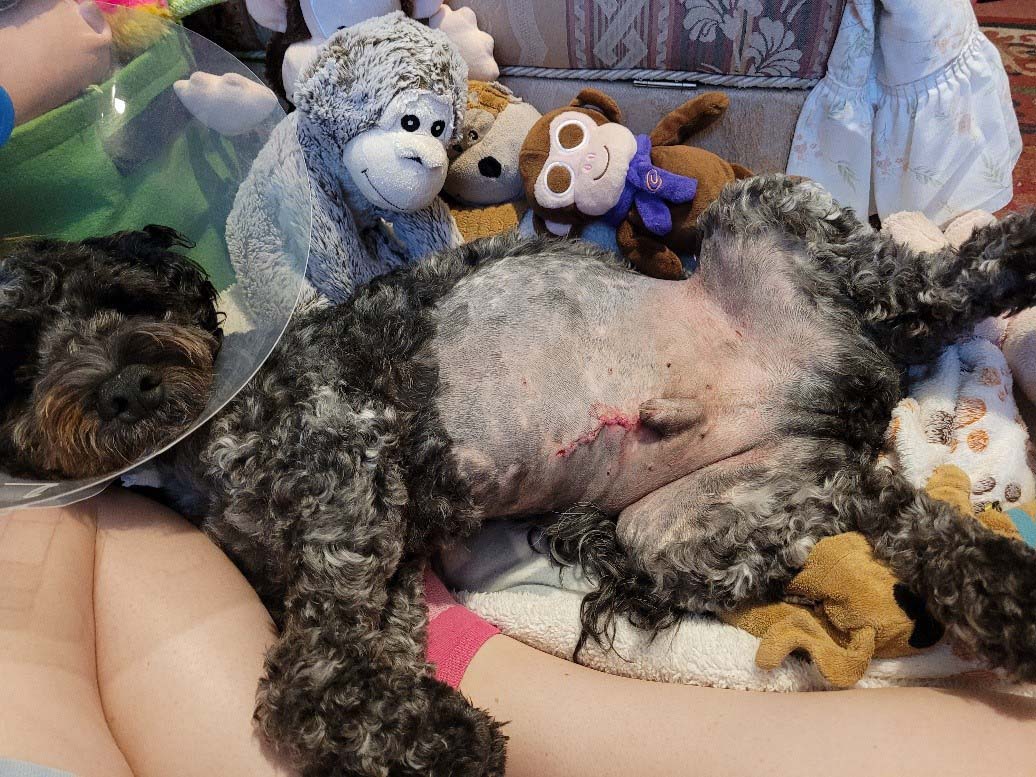In this new blog post, Becky Hammerton, a University of Winchester PhD student in the Centre for Animal Welfare, shares a personal story which highlights how important it is for us all to dispose of our single-use face coverings carefully in order to protect our environment, wildlife and our much loved animal companions.
Please note that there is a photo further down the page that some readers may find upsetting.
We're all still getting used to the changes we've had to make over the last couple of years as a result of the COVID-19 pandemic. Face coverings are still keeping us safe and making sure we can go about our lives with a bit more normality again.
However, there's one serious issue: a lot of people are just discarding their single-use face masks thoughtlessly. I'm sure you've all seen at least one when you've been out and about: I'm right aren't I?
As a University of Winchester PhD student in the Centre for Animal Welfare, I'm committed to protecting nature and preserving our beautiful environment. We all know and have heard of the climate crisis and plastic pollution: pollution is rife but it seems we've got a new issue with discarded masks.
What's caused all this concern? I'm sure most of you have already seen pictures on the internet of wild animals getting caught up in masks. It's extremely sad, but recently it came a bit closer to home for me.
My saviour during lockdown was our family dog, Milo, a three-year-old cockapoo. Taking him on his daily walks kept me sane, meant I got some fresh air and he was my real study buddy.
But unfortunately, last month Milo found a mask that was wrapped around a bone. Whilst we're hoping it didn't have malicious intent and prefer to think someone discarded the mask after a snack or that it was pulled out of the bins by a fox, the scent of the bone meant Milo forgot all training of 'drop', 'leave' and 'give'. We managed to get the bone off him, but in doing that the ear string of the mask snapped and he ingested the rest of the mask in one.
A swift trip to the vets and some x-rays found that the mask had a metal nose clip. This is brilliant in making sure the mask fits tightly around your face, not so brilliant for the animal who won't be able to pass it naturally without risk of internal injury. After a sleepless night and emergency surgery the next morning, a very sleepy dog returned home and has made a good recovery.
But reading up online we soon saw that the same thing has happened to a lot of dogs, with very sad outcomes in some cases.

Milo after surgery Photo: Rebecca Hammerton
Whilst I still wear a face mask in every indoor space and crowded spaces to protect myself and others - and I completely encourage everyone to do the same - I just can't stop but think I need to do more about how face masks are being thoughtlessly and dangerously discarded after use.
I've been part of a campaign, with the charity People's Dispensary for Sick Animals (PDSA) who treated Milo, and we managed to reach over 200 newspapers and websites with a potential reach of over 22 million people through our press release and have raised over £100 for the PDSA via our Just Giving page.
There are PPE recycling points at the University of Winchester's Physiotherapy teaching facility, which is in the main city centre. We also hope to get a PPE recycling point on the King Alfred Quarter in the next few weeks. You can also recycle face masks in certain high street shops (Wilko and Morrisons).
So, what's the message? If you can, recycle your face masks once you have finished with them. If you can't, please dispose of them properly, don't litter, and don't add another problem to the challenges our environment is facing.
We can all make a difference, one step at a time.
Press Office | +44 (0) 1962 827678 | press@winchester.ac.uk | www.twitter.com/_UoWNews
Back to media centre